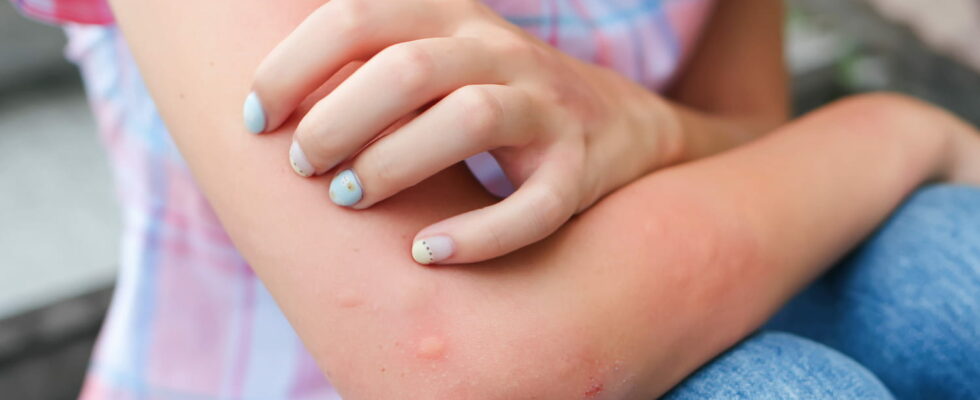Of the 3,500 species of mosquitoes that exist in the world, only 15% bite us. Fortunately, you might say, because it’s always you who gets bitten instead of your neighbor!
When you wake up, you’re itchy, you’ve been bitten by a mosquito again! Why do mosquitoes bite you and not others? “The answer to this question is far from being so simple, answers Anna-Bella Failloux, entomologist at the Arbovirus and Insect Vectors unit at the Pasteur Institute. Mosquitoes have eyes, but they cannot see very well. However, they have antennae with a highly developed olfactory system. Thanks to their antennae, mosquitoes capture molecules in the air. The male captures the scent of the female while the female is attracted by food, i.e. the blood of a person or an animal. she explains. So it would be your smell that would mainly explain why you are bitten more by mosquitoes than other people. How then to divert their attention?
As the entomologist explains, the females of certain species of mosquitoes preferentially bite humans because they are attracted to the molecules emitted by bacteria on the surface of the skin: the skin microbiota. The composition of these bacteria depends on our physiological state, whether we are sick or healthy, the food we eat, whether we sweat a lot, whether we have been exposed to the sun, etc. The bacteria adapt to their skin environment and modify its flora.
“Mosquitoes flee high body temperatures”
“Mosquitoes flee high body temperatures, such as fever, specifies Anna-Bella Failloux. On the contrary, this are insects that take blood from warm-blooded organisms. They like warmth, which is conducive to the hatching of eggs. Mosquitoes are also attracted to the CO2 (carbon dioxide) emitted by populations.” People who sweat a lot are more likely to be bitten, as are those who emit more carbon dioxide.
Furthermore, we emit molecules that are all different: some of them attract mosquitoes, others chase them away (repellent effect). “This is why we have not yet found a universal repellent. It is also a very underexplored area of science, with limited funding.”
Our entomology expert is without a doubt: to avoid being bitten, “We must go to the source by eliminating the water containers in which mosquitoes lay their eggs. This is the most important measure to avoid being bitten. But in practice, eliminating sites that are conducive to hosting mosquitoes is not so easy, especially in cities, which are heat islands, with a dense environment and a lot of concrete. To counter these phenomena, we green cities to mitigate temperature peaks, but we provide favorable conditions for the proliferation of mosquitoes.”
Other measures can have a repellent effect, without preventing the sting 100%. These include lemon eucalyptus essential oil or the CO2 trap.
Thanks to Anna-Bella Failloux, entomologist at the Arbovirus and Insect Vectors unit of the Pasteur Institute.
